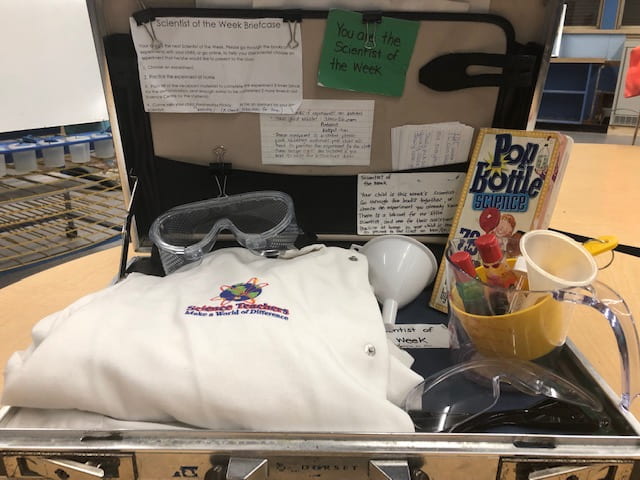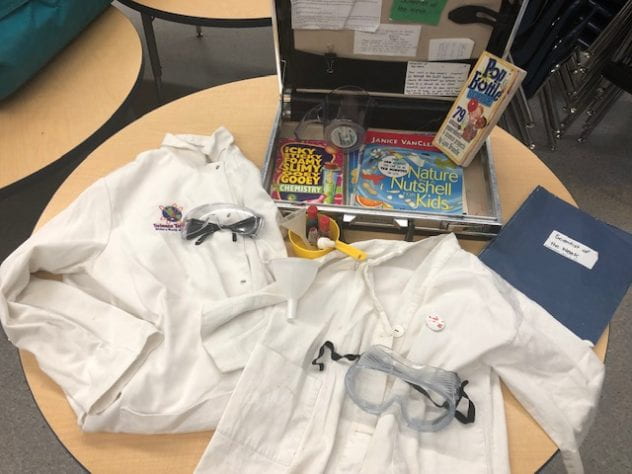By: Stephanie Musgrove (Elementary Teacher and recipient of the Prime Minister’s Award for Teaching Excellence: Regional Certificate of Achievement)
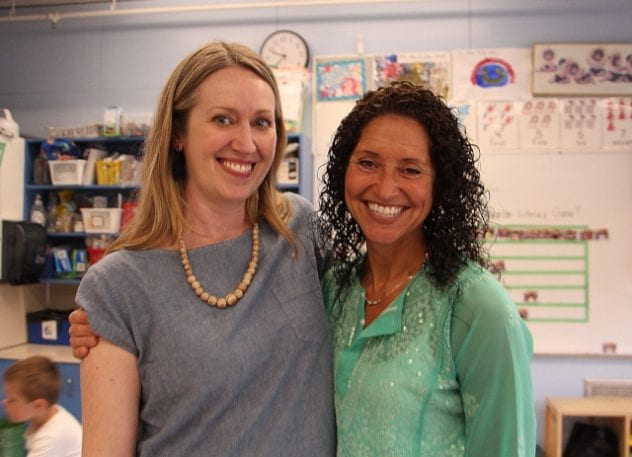
“Hi, my name is Sofia the Scientist and this is my assistant, Mom. To do my experiment you will need: a boiled egg, a bottle, paper and fire.”
“Fire” was Sofia’s word for lighter. Sofia moved from the Ukraine less than a year before starting Kindergarten, “and made her first steps in English,” her mom told me, “at a daycare a few months before starting school.”
She was not shy, she was quiet. Quiet because she was immersed in a language that was not her own. Quiet because she understood that learners are listeners. Sofia did not need reminders to raise her hand before she spoke, she rarely spoke. Then it was her turn to be the Scientist of the Week….
“First you light the paper on fire,” her Mom busily rolled the paper and lit it. “Then you drop it in the bottle.” Sofia then held up the egg. I don’t remember if it was her or her mom who then said, “you are about to be amazed!” They were both so excited. The egg was placed in the mouth of the bottle and the anticipation on her face created a hush in the room. “Something’s happening,” a little boy uttered. Suddenly the egg was sucked into the bottle, dropping to the bottom with a thud. Peels of excitement and cheering rang out in our room.
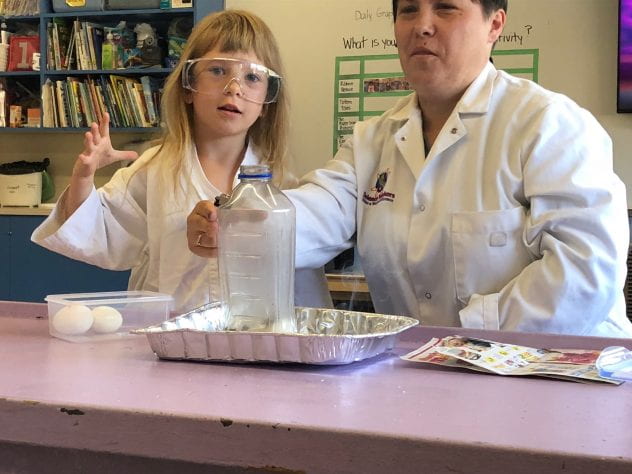
Sofia looked so proud, as did her mom. Together the two explained the scientific principles of their demonstration, then asked if anyone had any questions or comments. Sofia could stand in front of her peers with confidence because she had time to practice at home with the support of her family and her first language. Mom discussed what was happening in Russian and the pair decided how they would explain it to the class in English. A lesson perfected in ways that I never could have done.
(See this Science Experiment come alive here)
What is Scientist of the Week?
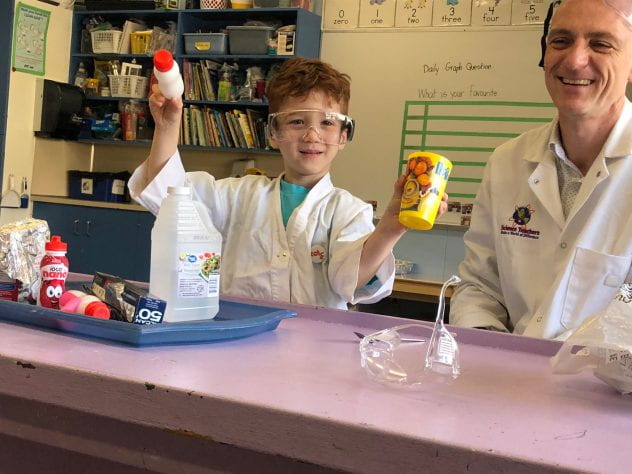
One of my favourite classroom activities is Scientist of the Week. It takes Show and Tell to whole new level. I have grade 5 students that come back every year to ask if my “twin sister” has come back yet this year, and what experiments have happened so far. It is a highlight for all of us, and something EVERY teacher can pull off! No special course work to do, no science degrees necessary, and no siblings required either.
Let me explain…
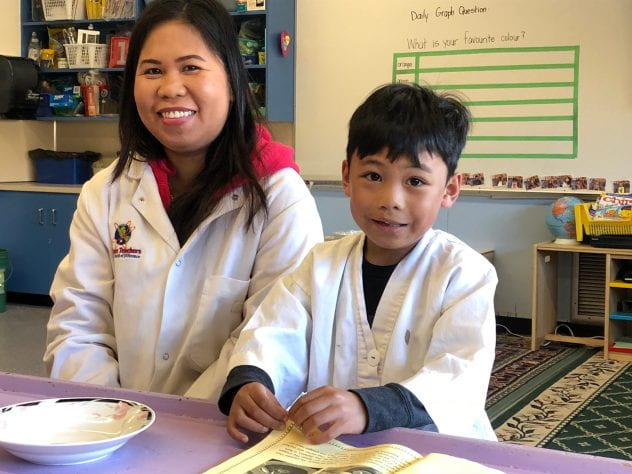
Teachers are often seen as experts in everything and in nothing in particular all at once. This is why you need to have your “twin” show up to get things started. My students would never believe that I am a scientist, or that I know about experimentation or scientific processes – so I bring in an expert: my sister, Suzie the Scientist! Do I really have a sister named Suzie? Yes. Is she a scientist? No.
But I will tell you from experience if you choose a name that is NOT your real sibling’s name, they will catch you! Teachers are in the business of building relationships. Like other teachers, I talk about my family. Often. They know where I grew up, how many siblings I have and how many of my own children I have.
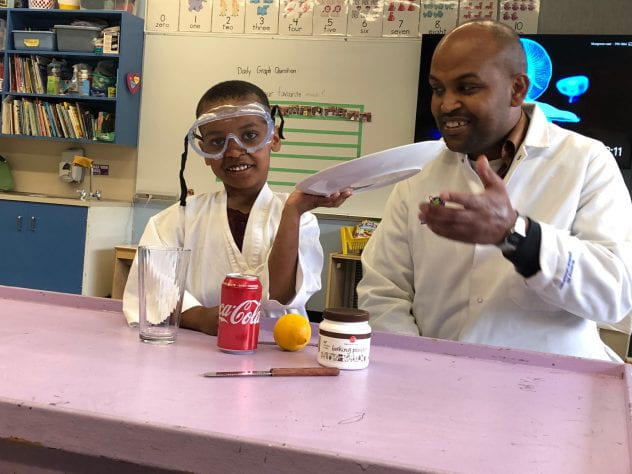
Years ago, while I was sharing a childhood memory that included my sister, a little boy challenged me:
“Suzie?? Your twin sister’s name is Nancy! And you only have one sister!”
Busted. Live and learn.
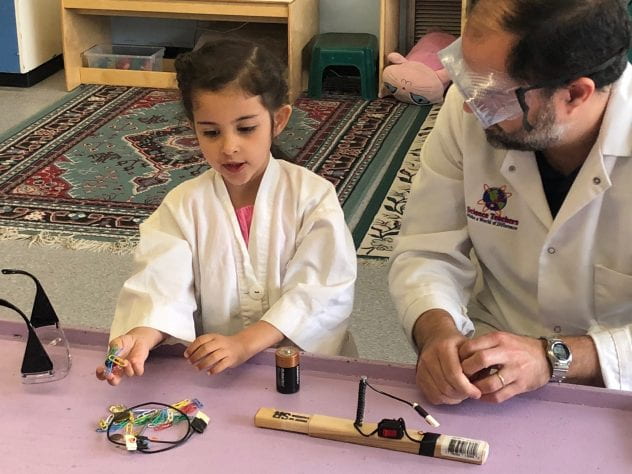
Suzie the Scientist shows up every year just before Spring Break. She does an experiment for the class every day, showing up every time I seem to get called to some meeting. (Coincidence? No.) She performs exciting demonstrations like “Dancing Raisins,” “Elephant Toothpaste,” and multiple versions of baking soda and vinegar eruptions. Besides the excitement of having a guest visit our class, my students are always on their best behavior when she arrives because I explain that she is really shy, and doesn’t really like lots of noise, and doesn’t work with kids.
“She would run out of here terrified if kids started calling out and talking to each other when she was explaining something!”
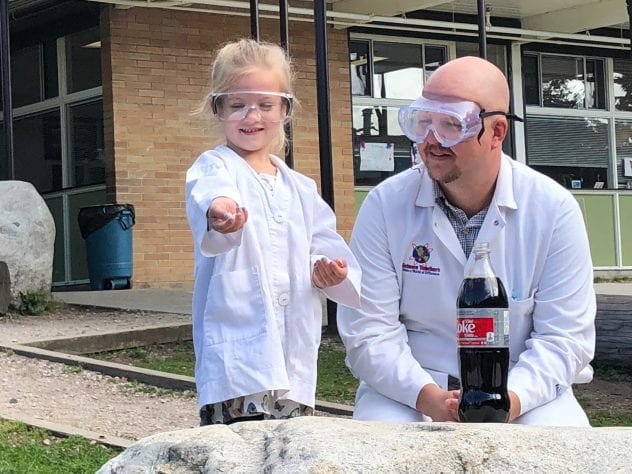
Sold. They would do anything for her to come back again the next day, so they are all crisscrossed – apple sauced and zipped lip until she finishes!
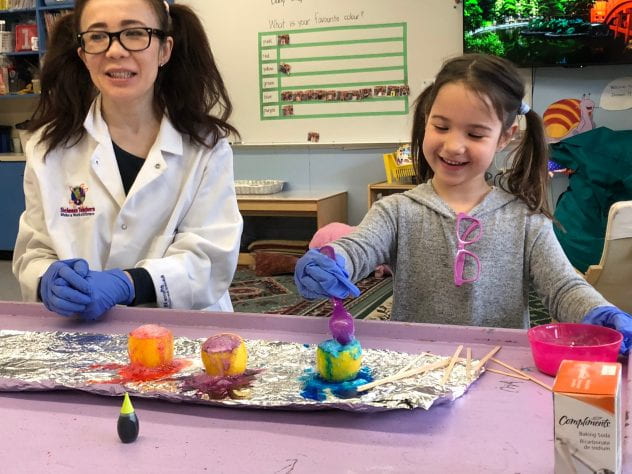
However, all good things must come to end. By the Friday of that week I drop the bad news on the class that Suzie can’t come back. “Noooooooo!” I inform them all that she has taken a job at a science lab in Kelowna (because that is where she really lives – they have caught me on that before too!) and will not be able to come do any more experiments for us.
“BUT…. all eyes widen now…she left her Briefcase of Science behind with a note that she want all of YOU to take over! Do you think that YOU could be scientists?? Do you think that each of you could do an experiment for the class too?”
“Yesssssssssss!” And so it begins.
How to Include Scientist of the Week in Your Class
The Briefcase is stocked with a few necessary items:
- 2 lab coats – one child sized, and 1 adult sized for the assistant
- A few books of experiments for kids
- 2 pairs of safety glasses
- A box of food colouring
- A funnel, a mearing cup, a graduated cylinder is nice but not necessary, and an eyedropper (I just save them from medicine and vitamin jars)
All of these things can often be found around the school, but Amazon is always there for any items you can’t find!
Students take home the briefcase and get two days to prepare. Moms and Dads hold a series of rock-paper-scissor tournaments to decide who will get to be the assistant. I take photos and enjoy the demonstration as much as the class does. It is report card gold! It involves inquiry, student choice, and fosters the development of every aspect of oral language imaginable! Even at my best, I can’t possibly teach science in a way that interests or excites every one of my students. Shifting power to the students is not just empowering for them, it’s a relief for us!
How often can we create a situation where every student in our class gets to learn exactly what they want, gets to present in a way that they want, or gets to wear a lab coat? Finally something that is not “more work,” it’s less! Your science unit is planned – by your students!
